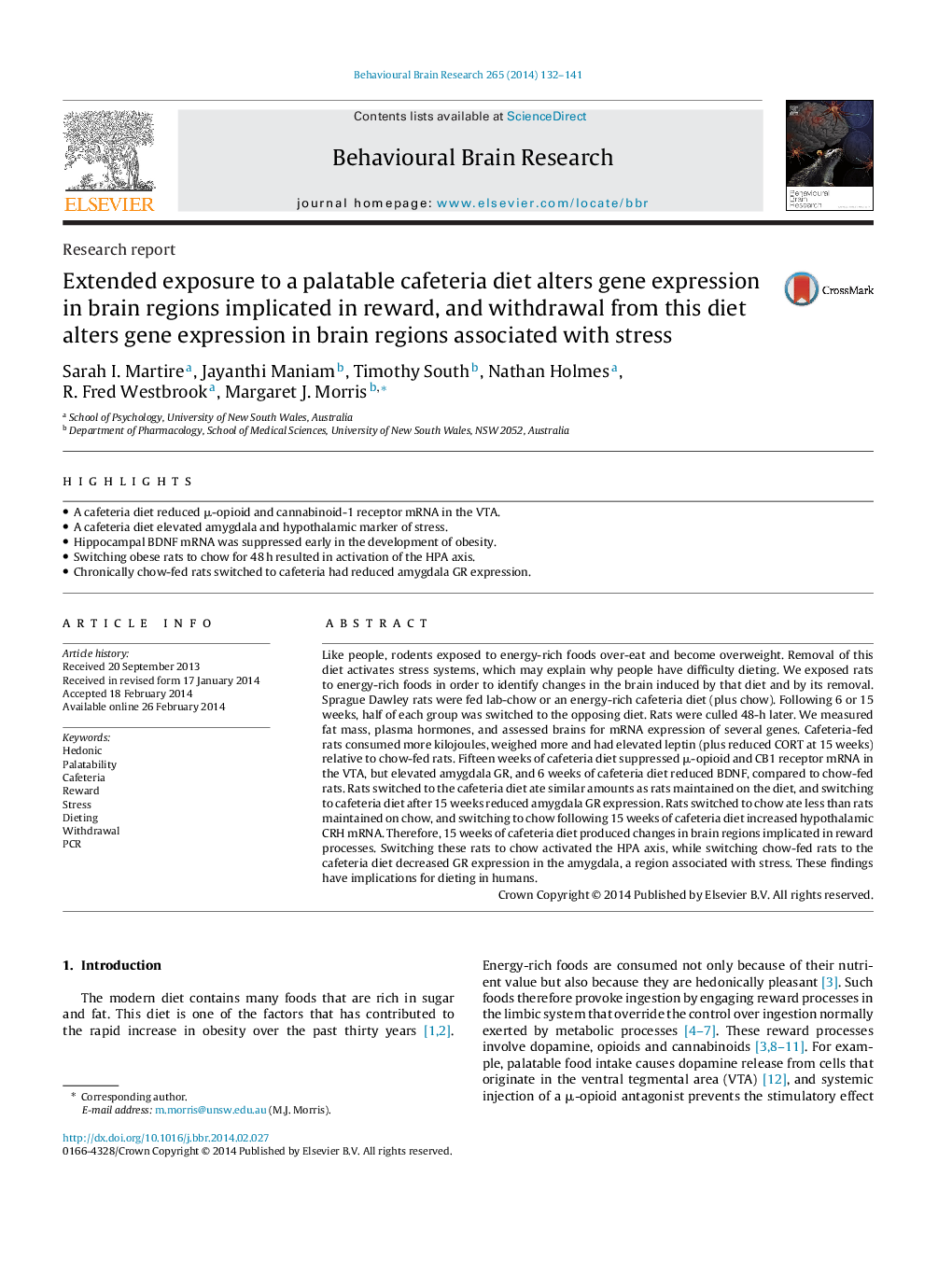| کد مقاله | کد نشریه | سال انتشار | مقاله انگلیسی | نسخه تمام متن |
|---|---|---|---|---|
| 6258304 | 1612967 | 2014 | 10 صفحه PDF | دانلود رایگان |
- A cafeteria diet reduced μ-opioid and cannabinoid-1 receptor mRNA in the VTA.
- A cafeteria diet elevated amygdala and hypothalamic marker of stress.
- Hippocampal BDNF mRNA was suppressed early in the development of obesity.
- Switching obese rats to chow for 48Â h resulted in activation of the HPA axis.
- Chronically chow-fed rats switched to cafeteria had reduced amygdala GR expression.
Like people, rodents exposed to energy-rich foods over-eat and become overweight. Removal of this diet activates stress systems, which may explain why people have difficulty dieting. We exposed rats to energy-rich foods in order to identify changes in the brain induced by that diet and by its removal. Sprague Dawley rats were fed lab-chow or an energy-rich cafeteria diet (plus chow). Following 6 or 15 weeks, half of each group was switched to the opposing diet. Rats were culled 48-h later. We measured fat mass, plasma hormones, and assessed brains for mRNA expression of several genes. Cafeteria-fed rats consumed more kilojoules, weighed more and had elevated leptin (plus reduced CORT at 15 weeks) relative to chow-fed rats. Fifteen weeks of cafeteria diet suppressed μ-opioid and CB1 receptor mRNA in the VTA, but elevated amygdala GR, and 6 weeks of cafeteria diet reduced BDNF, compared to chow-fed rats. Rats switched to the cafeteria diet ate similar amounts as rats maintained on the diet, and switching to cafeteria diet after 15 weeks reduced amygdala GR expression. Rats switched to chow ate less than rats maintained on chow, and switching to chow following 15 weeks of cafeteria diet increased hypothalamic CRH mRNA. Therefore, 15 weeks of cafeteria diet produced changes in brain regions implicated in reward processes. Switching these rats to chow activated the HPA axis, while switching chow-fed rats to the cafeteria diet decreased GR expression in the amygdala, a region associated with stress. These findings have implications for dieting in humans.
Journal: Behavioural Brain Research - Volume 265, 15 May 2014, Pages 132-141
